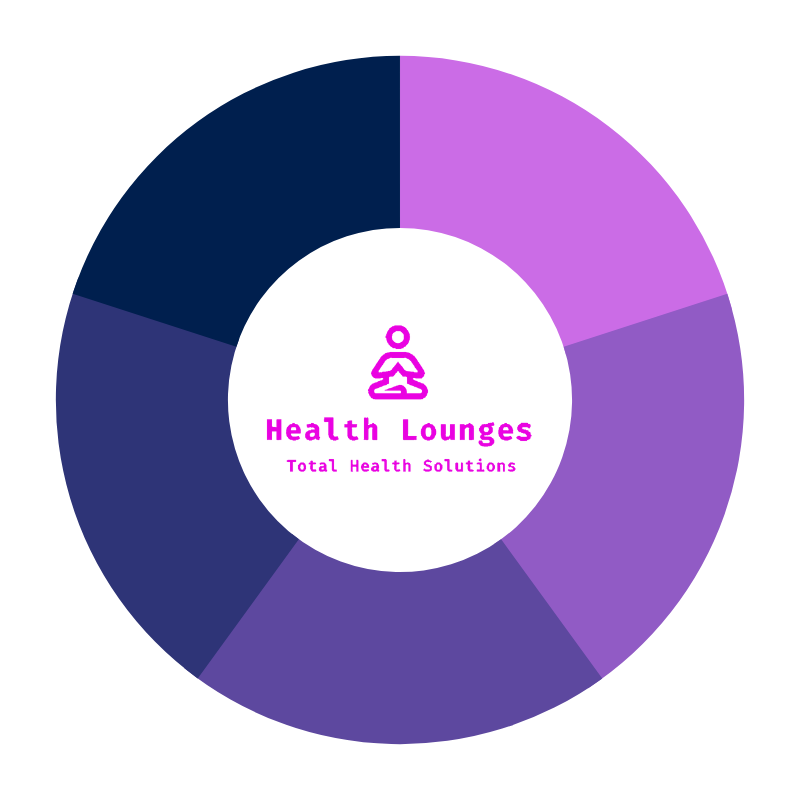How to be less stressed, more “zen.”
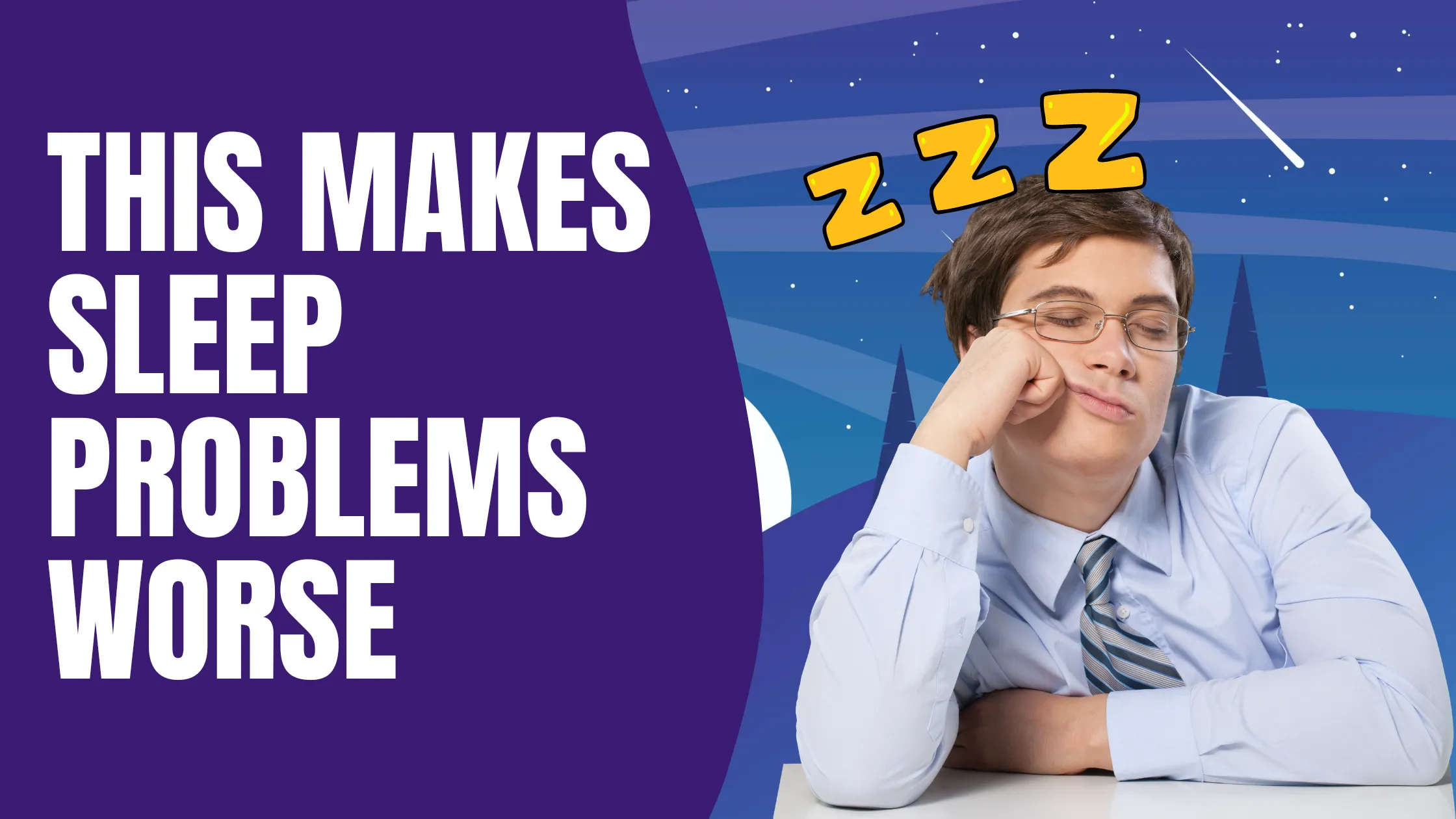
“I’m so stressed out!”
In just four words, that statement says a lot.
Rough translation: “I’m feeling anxious, frustrated, and overwhelmed, and I’m struggling to cope right now.
Everyone’s been there, of course.
But some folks say this high-stress state describes their everyday life.

Research suggests this could cause physiological dysfunctions that lead to long-term problems.
That’s because acute and chronic stress has been shown to increase stress biomarkers, such as the hormone cortisol. And irregular cortisol levels have been linked to both depression and emotional exhaustion.
So University of Montreal researchers were curious: Do “very stressed out people” exhibit higher stress biomarkers than those who are more “zen”?
Their recent study attempted to discover— led to some fascinating insights.
Quick Background
The scientists recruited 123 healthy volunteers who self-identified as either ”zen” or “very stressed out.”
They used the label “zen” because it’s widely associated with a “state of low stress.” They also say it represents a person with high control over their emotions and, thus, low stress and anxiety.

We suspect Bob Ross would’ve been in the “zen” group.
The researchers put both groups through a battery of psychological and emotional assessments to determine if their feelings—high-stress or low-stress—manifested in their blood work.
For example, these tests measured subjective ratings of perceived stress, depressive symptoms, anxiety, emotional regulation, and resilience.
One assessment, the Trier Social Stress Test (TSST), involved “a 10-minute anticipation period followed by a 5-minute speech and a 5-minute mental arithmetic task in front of judges.” (Fun!)
The Results
The two groups differed significantly on most of their psychological and emotional assessments, yet the scientists found no differences in their stress biomarkers.
Specifically, the “very stressed out” group scored significantly higher on the:
- The tendency to ruminate over stressful events
- Their capacity to inhibit hostile behaviors
- Their ability to control impulsivity
Overall, these participants exhibited more symptoms of depression and anxiety and had a lower ability to regulate emotions, say the researchers.
On the other hand, the “zen” group scored higher for resilience, emotional stability, and positive mental health.
But…
… when the researchers analyzed both groups’ cortisol levels during the day—one way to measure if they have a physiological stress response—the only difference they observed was higher cortisol levels in the high-stress group 30 minutes after waking.
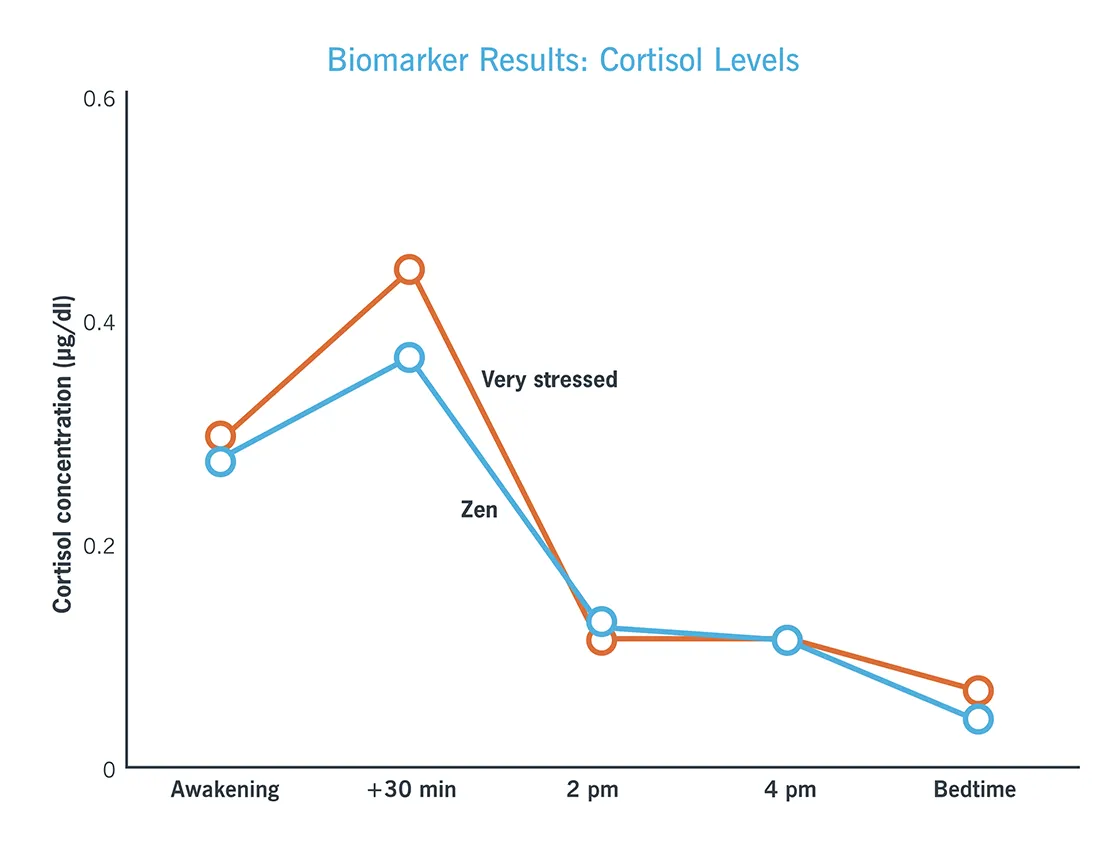
So despite feeling “stressed out” all day, their cortisol levels were essentially the same as the “zen” group.
The upshot: The “very stressed out” group was certainly feeling stress, but they weren’t responding to it physiologically.
At least not in terms of the biomarker the researchers measured. (Important note: The researchers say it’s possible other biomarkers would have shown an impact.)
What’s more, during the TSST (the test where they had to make a speech), the “very stressed out” group did indeed report “significantly higher levels of subjective stress compared to the ‘zen’ group.”
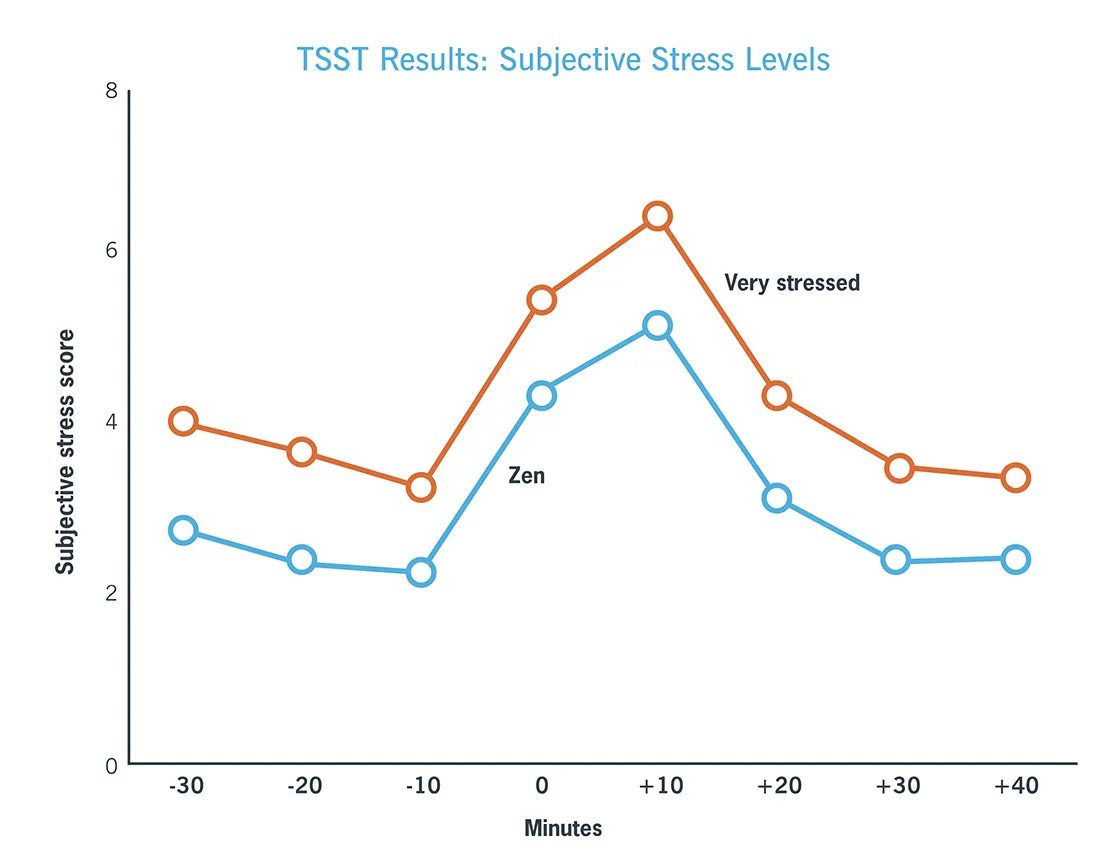
You’d probably expect that from folks who describe themselves as “high-stress.”
But while both groups saw their levels of cortisol spike—indicating a physiological reaction to stress—their response was similar.
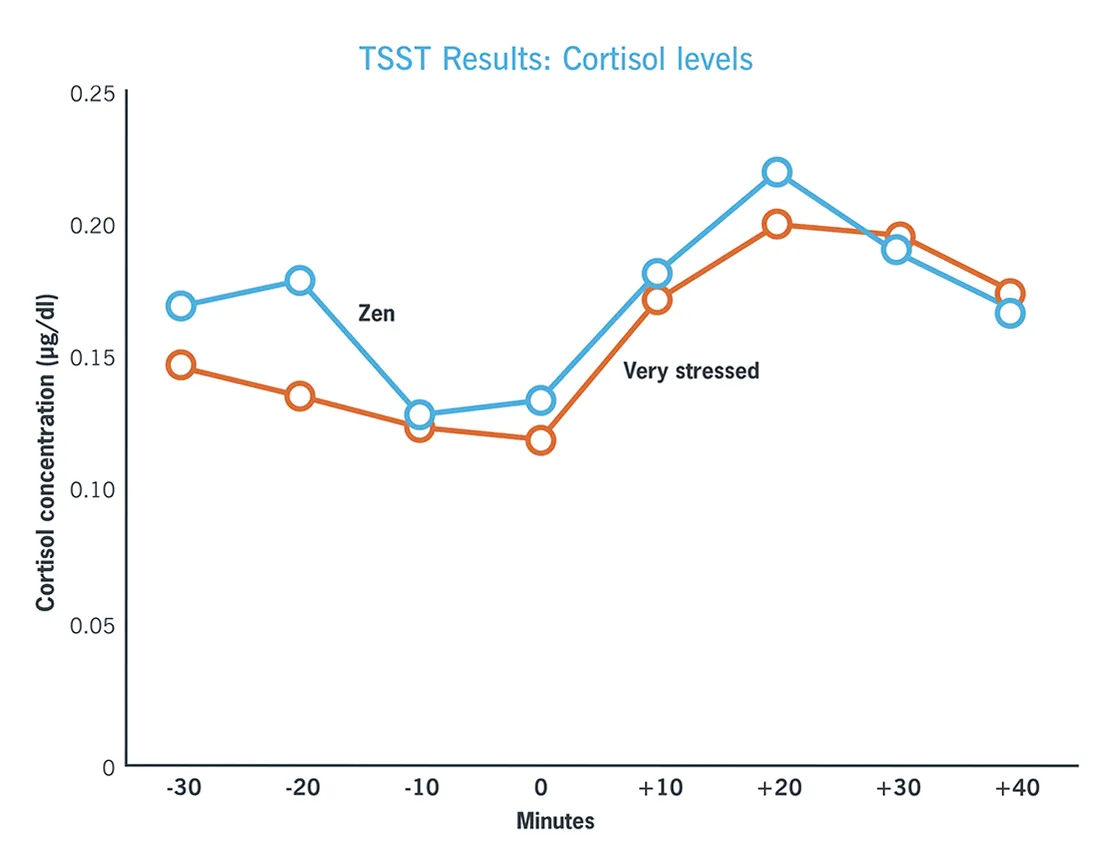
According to the researchers, these findings suggest that “when people complain of being very stressed out, they may be alluding to an experience of psychological distress related to poor emotion regulation capacities.”
If they’re right…
… this could be excellent news. It means that, for many “high-stress” people, there may not be an underlying physiological problem that needs to be dealt with. (As always, individual responses will vary, so we’re not suggesting this applies to everyone in all situations.)
Instead, you (or your clients) can improve emotional regulation skills to help you better cope with daily stressors and move closer toward “zen.”
Do you want to learn more ways to manage stress?
Check out our
It gives you the tools, know-how, and skills you need to help yourself (and others) cope better with life’s many stressors, improve mental and emotional well-being, and gain the capacity to make lasting health and fitness changes.
